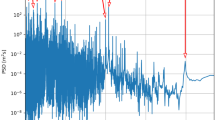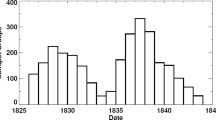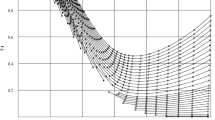Abstract
THE polio virus is able to develop only within given limits of temperature. The simplest reason for this seems to be that low and high temperatures block viral development by altering the metabolism of the host cell. Yet mutants of the polio virus can be obtained which thrive at these low or high temperatures at which the original type is unable to multiply: the sensitivity of viral development to temperature is thus controlled by the genetic constitution of the virus. Moreover, it was discovered that one mutational event shifts the whole curve expressing the sensitivity of viral development to temperature towards the left or the right: psyehro-sensitivity decreases when thermosensitivity increases and vice versa1.
Similar content being viewed by others
References
Lwoff, A., and Lwoff, M., Ann. Inst. Pasteur, 98, 173 (1960). Groman, N., Lwoff, A., and Lwoff, M., ibid., 98, 351 (1960).
Lwoff, A., and Lwoff, M., C.R. Acad. Sci., Paris, 251, 3131 (1960); 252, 223 (1961).
Lwoff, A., and Lwoff, M., Ann. Inst. Pasteur, 101, 469, 478, 490 (1961).
Lwoff, A., and Lwoff, M., J. Theor. Biol. (submitted for publication).
Author information
Authors and Affiliations
Rights and permissions
About this article
Cite this article
LWOFF, A., LWOFF, M. Cyclic Events in the Viral Cycle. Nature 192, 477–478 (1961). https://doi.org/10.1038/192477b0
Issue Date:
DOI: https://doi.org/10.1038/192477b0
- Springer Nature Limited
This article is cited by
-
Study of reproduction of some arboviruses at a raised temperature as a genetic marker
Bulletin of Experimental Biology and Medicine (1967)
-
Urge and Molecular Biology
Nature (1963)





